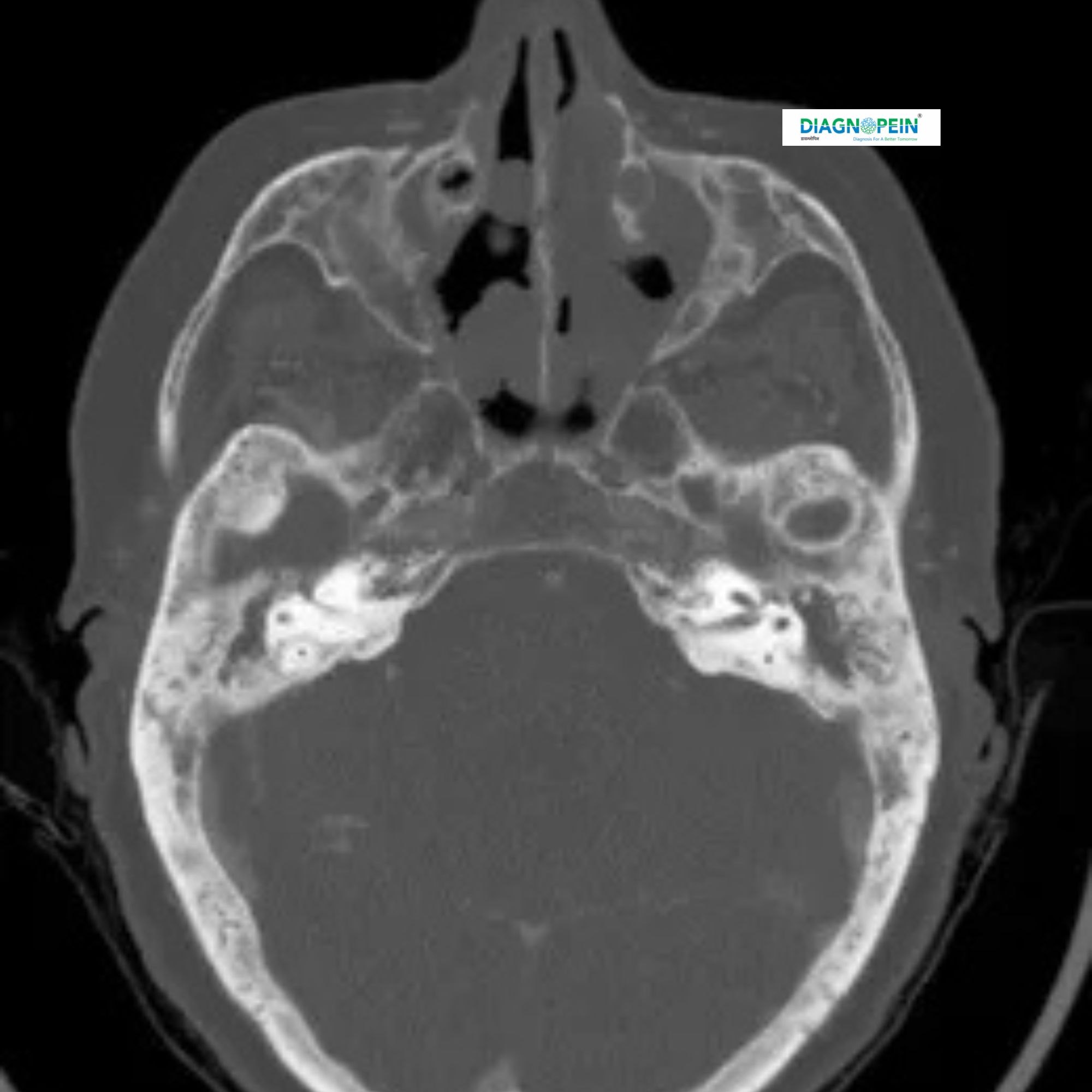What Is a CT Scan of the Paranasal Sinuses With Contrast?
A CT (Computed Tomography) scan uses advanced X-ray technology and computer processing to create cross-sectional images of your sinuses. When contrast material (a safe dye) is injected into your bloodstream, it highlights blood vessels and soft tissues, helping your doctor identify inflammation, infections, or structural problems with greater clarity.
This scan covers all paranasal sinuses, including:
- Maxillary sinuses (under the eyes)
- Ethmoid sinuses (between the eyes)
- Frontal sinuses (in the forehead)
- Sphenoid sinuses (behind the eyes)
Why Is the Scan Done?
Doctors recommend a CT PNS with Contrast for:
- Persistent or chronic sinus infections
- Nasal blockages or breathing difficulties
- Suspected sinus tumors or cysts
- Evaluation before or after sinus surgery
- Facial pain, swelling, or trauma
-
Detection of fungal infections or abscesses
This scan offers a comprehensive view of the sinus cavities, bones, and surrounding soft tissues, which helps in accurate diagnosis and effective treatment planning.
Preparation Before the Test
- Avoid eating or drinking for 4–6 hours before the scan.
- Inform the radiologist if you are pregnant, diabetic, or allergic to contrast dye.
- Remove any metal objects like jewelry or glasses.
- You may be asked to change into a hospital gown.
If contrast dye is used, a small IV line will be inserted in your arm for the injection.
How the Procedure Is Done
- You’ll lie on a CT scanner table.
- The scanner will rotate around your head to capture images from different angles.
- If contrast is used, you might feel a mild warm sensation during the injection.
- The entire process takes around 10–20 minutes and is painless.
After the scan, you can return to your normal routine immediately unless advised otherwise.
Benefits of CT PNS With Contrast
- Provides high-resolution 3D images
- Detects infections, tumors, and obstructions accurately
- Helps in pre-surgical planning
- Quick, non-invasive, and safe procedure
- Useful in differentiating inflammatory vs. neoplastic conditions
Possible Risks
While generally safe, minor side effects may occur such as:
- Mild allergic reactions to contrast dye
- Temporary metallic taste or warmth
- Rarely, kidney issues in patients with kidney disease (doctor will assess risk)
After the Test
Drink plenty of water to help flush the contrast dye from your body. Your radiologist will analyze the images and share the report with your doctor for further evaluation and treatment.
Why Choose Diagnopein for CT Scan of Paranasal Sinuses?
At Diagnopein.com, we ensure:
- Advanced multislice CT scanners for precise imaging
- Experienced radiologists and technicians
- Quick reporting and reliable interpretation
- Affordable prices with transparent billing
- Comfortable and hygienic environment








